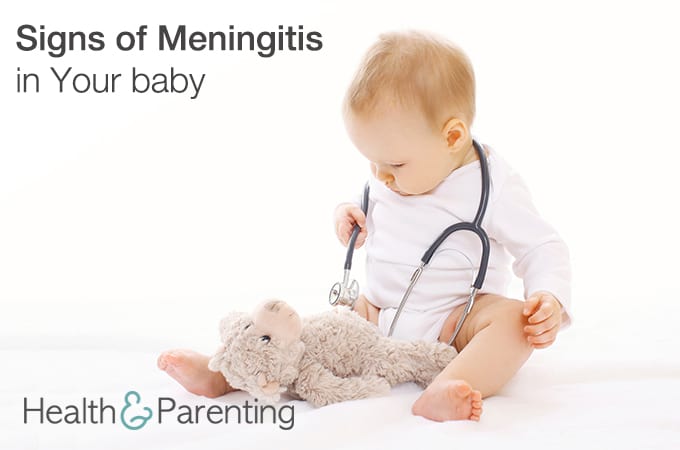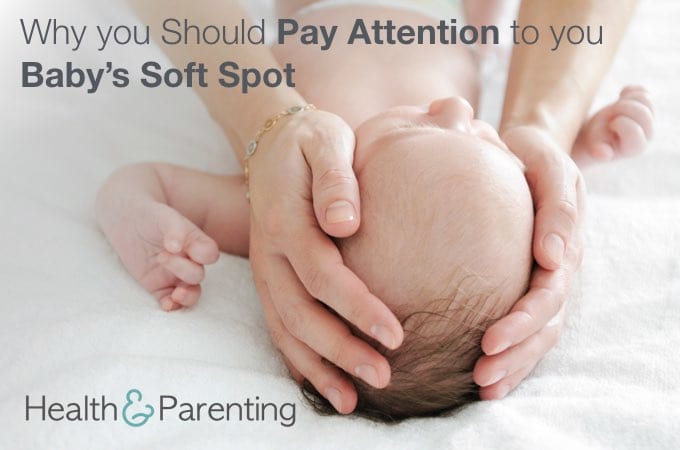Meningitis is an inflammation of the tissues that line the spinal cord and brain. A virus or bacteria are the most common cause of meningitis. Occasionally a fungus can also cause meningitis. Meningitis is a serious infection that can even be life-threatening.
Although anyone can get meningitis, babies between six and 18 months are one of the age groups most at risk of developing the infection. The thought of your baby contracting meningitis is frightening. But spotting symptoms early helps your baby get treatment quickly.
Symptoms of Meningitis
Keep in mind, symptoms of meningitis often start out like other common childhood illnesses. But with meningitis, babies get very ill quickly.
One common sign of meningitis is a high fever. The fever may come on suddenly. In some cases, babies have cold feet and hands even though the rest of their body is hot.
Babies may also seem excessively sleepy. When awake, a baby with meningitis may seem to have a starring expression. Vomiting and diarrhea may also develop.
If your baby has meningitis, he may have a stiff neck, which can be hard to detect in an infant. One sign of stiffness is he may cry when he is picked up and hold his body stiff.
Another sign of meningitis, which can be hard to recognize in a baby is a headache. Since your baby can not tell you if her head hurts, it’s important to spot other signs of a headache, such as a bulging fontanelle (the soft spot on your baby’s head). Inconsolable crying can also be a sign your baby’s head is hurting.
Extremeness fussiness, especially if it is uncharacteristic of your baby, can also indicate meningitis. Most babies also have no interest in nursing or eating solid foods.
Meningitis also can cause a skin rash. The rash may look like little pin pricks or tiny purple bruises on the body. But you do NOT need to wait for a rash before seeking help.
Other symptoms may include; tense or bulging soft spot, extreme shivering, refusing to feed, high pitched or moaning cry, blotchy skin, getting paler or turning blue, stiff body with jerky movements or else floppy and lifeless, cold hands and feet.
Important: Not every baby gets all these symptoms, and they can appear in any order.
Head to the emergency room if you think your baby has meningitis, and say that you are worried it can be meningitis or septicaemia. Always trust your instincts! The disease can progress quickly, and early treatment is essential. Although your baby’s symptoms could be something other than meningitis, it’s also better to err on the side of caution when it comes to your baby’s health.
Your baby’s doctor will perform blood tests, a physical exam and possibly a lumbar puncture to rule out or confirm meningitis. A lumbar puncture is done to obtain a sample of spinal fluid.
Treatment for meningitis depends on whether it is viral or bacterial meningitis. Although meningitis can be serious, if symptoms are recognized early and treated quickly, most babies make a full recovery.
Many countries have a vaccine, which is available that protects babies against certain bacteria that can cause meningitis. Depending on where you live, your baby may have an increased risk of contracting meningitis. For example, certain regions of the world have a high tick population that may carry bacteria, which can cause meningitis. Your best bet is to speak to your doctor about the benefits and risks of having your baby immunized against meningitis.
Written by MaryAnn DePietro @ writerlady34
This information is not intended to replace the advice of a trained medical doctor. Health & Parenting Ltd disclaims any liability for the decisions you make based on this information, which is provided to you on a general information basis only and not as a substitute for personalized medical advice. All contents copyright © Health & Parenting Ltd 2016. All rights reserved.











